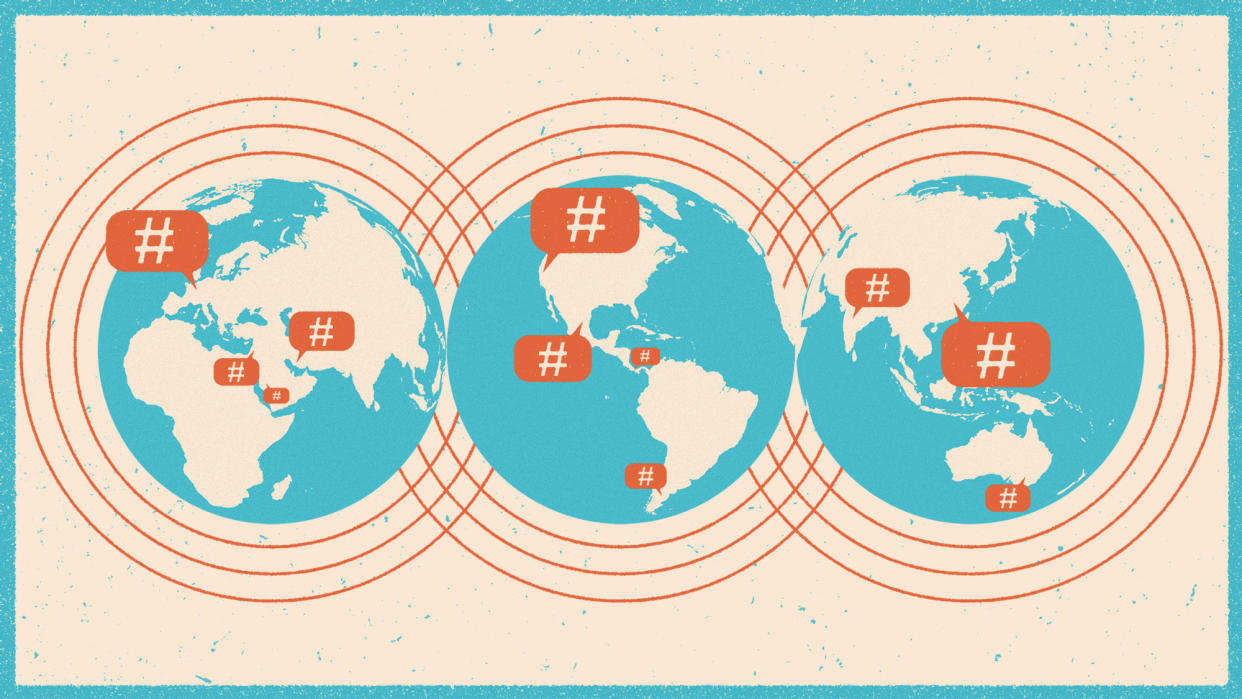The #MeToo movements around the world

An offshoot of the #MeToo movement has sprung up in France, paving the way for a new reckoning for the nation's cinema industry.
Actor Aurélien Wiik launched the hashtag #MeTooGarçons (#MeTooBoys) last month and claimed that he was a victim of sexual violence by his agent and members of his entourage from the age of 11 to 15. "The boys of the cinema are waking up," he said.
Within "a matter of days", said Euronews, a new movement "liberating the male voice was born", with "hundreds of accounts of sexual assault and rape published online.
Coined by US activist Tarana Burke in 2006, the term #MeToo became a viral hashtag in 2017. Allegations of rape and sexual assault against film producer Harvey Weinstein, and his subsequent conviction, "shook Hollywood to its core", said the news site, and "sparked worldwide conversations" about harassment and misogyny.
Here is how the movement has taken hold in different countries.
China
In the "land of censorship", feminists have had to contend with "headwinds in a political environment where the ruling Communist Party’s control over the internet, media and independent activism is tighter than it has been in 30 years", wrote Yaqiu Wang in The Washington Post in 2020.
As the movement grew around the world, an article in the state-run China Daily newspaper insisted that sexual misconduct was rare there, because "Chinese men are taught to be protective of their women".
But Chinese sportswomen, academics and women from the film industry have since shared their experiences, under the hashtag #WoYeShi.
Middle East
Mona Eltahawy launched the hashtag #MosqueMeToo in 2018. "I was called a liar when I first spoke out about my sexual assault at hajj," she wrote in The Washington Post, but "now, we are too many to be dismissed as liars".
In 2020, as the #MeToo movement gained momentum in Iran, 13 Iranian women told The New York Times that they had been subjected to sexual assault and abuse by Aydin Aghdashloo, an internationally renowned Iranian artist with ties to the Tehran regime.
"I am not a perfect man," said Aghdashloo, dubbed the "Harvey Weinstein of Iran" by his accusers. But he told the paper that the allegations were "full of significant inaccuracies, mischaracterizations and fabrications".
In Israel, a Hebrew hashtag meaning #UsToo made front-page headlines, with some men responding by using a hashtag, #HowIWillChange, discussing how to prevent future abuse. In Gaza and the West Bank, Palestinian women used #AnaKaman (#MeToo).
United States
Since 2017, employers in Hollywood have been required to provide more intensive training to prevent workplace harassment, immediately investigate claims of harassment, and implement a "zero tolerance" policy towards offenders.
But the movement has "seemingly fallen short" in maintaining its success in the US "beyond the glamorous celebrity sphere", said The McGill International Review. Nevertheless, the National Women's Law Center found last year that 24 US states and the District of Columbia have passed more than 80 workplace anti-harassment bills since #MeToo began, said Forbes.
In 2022, five years after the hashtag went viral, around half of Americans who had heard of the #MeToo movement expressed support for it, while 21% were opposed, according to Pew Research Center. The think tank reported "wide partisan gaps", with Democrats "roughly three times as likely" as Republicans to be supportive.
Mexico
When the #MeToo movement started in 2017, it "felt distant, like a Hollywood production", wrote Tamara De Anda in The Washington Post. But two years later it "exploded" and Mexican women have "lost their fear forever".
Ana G. Gonzalez, a political communications consultant, used Twitter to accuse a writer of abusing 10 women. "By speaking up, she would go on to inspire hundreds of women to share their personal stories of harassment and abuse," said Do Something.
Last year, the nation's "worst alleged #MeToo offender", writer and diplomat Andrés Roemer, was arrested in Israel, "two-and-a-half years after sexual misconduct allegations against him from dozens of young women surfaced", said Vice.
France
Judith Godrèche, an actor who has accused two high-profile directors of raping her as a teenager, last month called for an end of the "omerta" surrounding the abuse of women and girls in the film industry, said The Guardian.
Both men deny the claims, but after the story went public, several other actors came forward with allegations of sexual assault and harassment, and Godrèche's speech at the 49th Césars ceremony was "something of a landmark moment", said Euronews.
The French film industry has been "shaken" by numerous allegations against actor Gérard Depardieu, said The Guardian, the most recent of which emerged last month when a film assistant accused him of sexual assault in 2014.
With the #MeTooGarcons hashtag gathering online traction, there could be a new wave of allegations against other figures in France.

